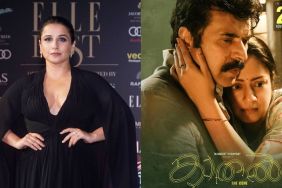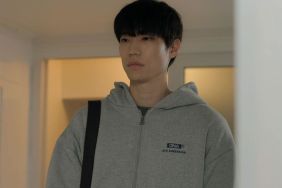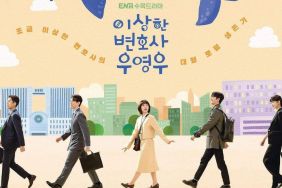Back in the ’90s, F. Gary Gray was the go-to guy for some of the top rappers including Ice Cube, who brought him onboard to direct his early comedy Friday. Fourteen years later and Gray’s latest movie, his seventh, is Law Abiding Citizen, a two-handed psychological thriller starring Gerard Butler and Jamie Foxx, that harks back to Gray’s earlier movie The Negotiator but shows how greatly he’s improved as a filmmaker in the ten years since making that movie.
Butler plays Clyde Shelton, a man whose wife and daughter were murdered in a home invasion, setting him on a path of revenge that doesn’t just stop with the killers, as he also blames the prosecutor, Foxx’s Nick Rice, and everyone else involved with the case, as they’re picked off one by one while Shelton sits in a jail cell waiting for his sentencing. That’s probably already more than you should know going into this smart, sharp thriller that keeps you guessing at every turn with lots of shocks and surprises, but it’s obvious that Gray has set the right mood and tone to make it quite a riveting film.
ComingSoon.net got on the phone with Gray last week to talk about how the project came together.
ComingSoon.net: Was this movie done fairly independently compared to your other movies?
F. Gary Gray: Yeah, I think so. I think Overture’s involvement came a little later. I don’t know all the details but I think it was a little later.
CS: What about yourself? I guess Kurt had the script written and it had been in development for a while before you got involved?
Gray: My producer Lucas Foster had been developing it with Kurt Wimmer for a little while, and ultimately, got it going with the film department to get it made.
CS: Had you decided early on while he was working on it that you’d direct it or did that come later?
Gray: I came in a lot later and I’d been wanting to work with Jamie Foxx for years. We’re friends and we wanted to find the right material, so I was lucky enough to get a call from him out of the blue, saying “Hey, listen, I’m working on this project with Gerard Butler. I think you’d be perfect for it. Read it and tell me what you think right away.” I read it, I loved the concept, I loved the material, and hopped on board with seven weeks until shooting.
CS: Did you see this as being very different from your past work? I know “A Man Apart” had some similar revenge themes.
Gray: I thought it was really different actually. It was a psychological thriller, which is my first time delving into this genre. It’s definitely different material for me, and I’m always looking for a challenge and I felt it was unique enough and the concept was different enough. Although most (of my) films had some sort of revenge element weaved into the conflict, but I felt this was different because to have a man take an entire city hostage from a jail cell is a concept I’ve never done before and I’ve never seen before. I was extremely excited about the material, and it’s one of those things where you don’t get scripts often where it keeps you guessing and I read it and it was one of the only scripts where I couldn’t predict what was going to happen. That’s what was really exciting about it to me.
CS: That’s the vibe I got from the screening as well. I didn’t see the trailer before seeing the movie, and I think it would have been a completely different experience if I’d seen the trailer first. I went in not knowing anything about the movie, and it really worked as a thriller, which can be very hard to do.
Gray: It is hard to do, and you know what? If there were a different way to market the film without trailers, this is definitely one of those movies where if you walk in, you’ll be surprised beyond belief. That’s what I love about it, but even with watching the trailer, there are still quite a few surprises and the chemistry between Jamie and Gerard makes it worth watching, and I think besides the adrenaline-packed action sequences and the fact the story has all these twists and turns and keeps you guessing, I think the chemistry between Jamie and Gerard is great and it’s what sets it apart and is part of the appeal.
CS: That’s true, they are so good together. We’ve seen it many times where you can have two great actors and they just don’t work together, so can you talk about how that chemistry works between the two of them and what they each bring to the table that makes them work so well together?
Gray: Well, you know what? It all starts with rehearsal.

CS: So you’re big on rehearsals then.
Gray: I’m HUGE on rehearsals. It’s something where you have to sit down, I think, with material like this, and find not only the story you’re trying to tell, but along with the actors, you want to define the characters, you want to define the objective of each character within each moment, and when you hash out all of the issues and differences and come to an agreement of the world we’re creating and we’re trying to establish, there’s a certain chemistry that happens between all of us. Rehearsals really help you with that, and you are absolutely right. You can have two of the greatest actors in the world and put them in a scene and somehow and someway, you don’t feel that connection. I think that both Gerard and Jamie, they have this quality about them where it’s easy to connect to them because you can relate to them. They’re not unrelatable guys. You’re used to having fun and laughing and joking and being connected to Jamie through his comedy and his music and things like that. He’s just that type of person. Gerard started a little later in life with his acting career, so he brings his own life experiences to his characters and specifically to this character that makes you… there’s an accessibility that’s hard to articulate but you ultimately feel for him and you understand him, because you can relate to him. I think that’s what’s really great about him and that’s part of the reason why there’s a chemistry there, because you can relate to both of them, although they’re doing some pretty extreme things in the movie.
CS: When you got the script, what in particular did you want to bring to the movie? Did you have a very specific look or feel you wanted to bring to it?
Gray: Absolutely, absolutely. I sat down with Mark Gill and with Lucas Foster, and after having read the material, I felt like being as specific with the look and feel of the movie as possible would set it apart from other movies in this genre, and I was going for a neo-noir look. With the music and the colors. I didn’t want it to feel like a slick modern action film because we see those so often. I felt like with the mood and the tone of the story that I really wanted to match that, and I felt that the neo-noir look would make it unique. Philadelphia was perfect for that approach because there’s so many retro elements to the past era that I used from Philadelphia. The City Hall by itself was a huge castle with its historic architecture. All throughout Philly, there’s these great, huge bridges. We shot in a prison called George Hill, it’s a prison I believe was built in the 1800s, so between the smokestacks and City Hall and the bridges and all of these retro elements. The fact that the city is laced with this history in justice. It was perfect for what I was going for, and I think it lends itself to the mood and the tone of the movie.
CS: Were you able to do a lot on location or did you end up having to build some of the sets on soundstages?
Gray: No, we did it all in Philadelphia. Every frame of the film we shot in Philadelphia.
CS: One of the interesting things about this movie is that it could be seen as a dig at the judicial system. There’s a lot of grey area–no pun intended–because it’s almost like you don’t really have any straight protagonists or antagonists. How did you feel about that aspect of the story, where it questions the actions of prosecutors and judges as much as it does the actions of a killer?
Gray: I do think that we should consider taking a look at our system, because a lot of times, people who are in a position of power make these decisions as if it’s just business as usual. The way the system is set up, the consequences are devastating for certain people who fall victim to attorneys and D.A.s and people in those positions who don’t look at each case and understand that each case is a different case and almost take it personally. It’s an issue, depending on who is handling that particular case. I wouldn’t say that it’s a dig more than I would say it’s worth visiting, because if someone is in that position and is more concerned about their conviction rate than they are about dealing out equal justice, then there’s a problem.
CS: I know when Gerry or Jamie are playing these roles, they can’t question their characters’ actions or motives, but as a director, do you also have to avoid taking side and be unbiased and impartial when making a movie like this?
Gray: I’m the guardian of the story, and the actors are the guardians of the moment, and I wouldn’t do a story if I didn’t believe in it, if I didn’t have passion for it. Some stories are just fiction, it’s fun and entertaining, and some stories are a little deeper. I truly believe in this story and I believe that, like anything else, if there’s room for improvement, let’s take a look at it. I think this movie does a great job at entertaining everyone and you go on this wild thrill ride, but at the same time, if you look close enough, it makes you think. I totally support how it makes people take the time to actually think about the subject matter.
Law Abiding Citizen opens nationwide on Friday, October 16. You can also see what Gray said about the possibility of a sequel to his hit movie The Italian Job here.









